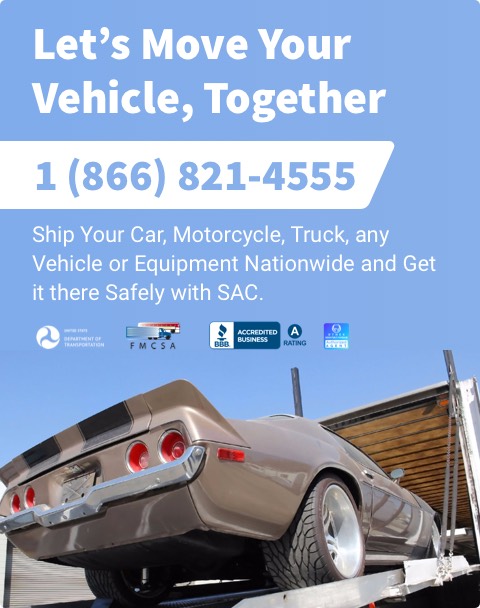The purpose of this blog post is to investigate the innovative use of WIM technology on the Brooklyn Queensway (BQE) in New York City. It demonstrates the effectiveness of this technology in reducing the number of overweight trucks and extending the lifespan of infrastructure while taking into consideration future expansion and technological challenges.
A cutting-edge ‘cool paint’ technology has been introduced by Nissan Motor Company with the intention of lowering the temperature of vehicles and reducing the amount of air conditioning that is required. This innovative technology reflects sunlight and prevents heat, resulting in a cooler driving experience as well as advantages for the environment. Nissan’s endeavor represents a big step forward in the development of automotive cooling technology, despite the fact that there are still obstacles to be addressed before commercialization can occur.
From 2023 to 2024, Toyota issued a recall that affected 22 different vehicle models. In this in-depth review, we examine the recall. Get familiar with the problems, the models that are affected, and the measures that Toyota is taking to ensure your safety.
Discover the latest Tesla recall plan affecting 1.85 million US vehicles and how it improves safety in this in-depth investigation. Learn about the technology advancements underlying Tesla’s preemptive actions.

This article explores the rationale for the 20% toll increase on Delaware bridges, the projects that have been financed, and the implications for the economy and transportation. Rehabilitating important bridge structures and updating tolling technology are two important initiatives that have a big impact on the region’s safety and economic stability.
In order to effectively handle recurring issues, this blog article explores the strategic adjustments that U.S. shippers must undertake in 2024. It focuses on improving supply chain visibility and diversifying port utilization. It provides long-term plans and doable solutions to assist stakeholders in handling unforeseen circumstances and preserving smooth operations.
The 2021 Infrastructure Law, which U.S. politicians are pushing to prioritize road safety via, is expected to significantly lower the number of traffic deaths. The aim is to make all roads in the country safer places for everyone by implementing strategic projects like Vision Zero and providing significant money for them. Find out how these legislative measures affect the way you commute every day.
A $2 billion decrease to DOT funds is proposed in the US House appropriations plan for FY 2025, which may have an impact on important transportation initiatives including the California High-Speed Rail and Amtrak. This indicates a substantial change in transportation strategy, prioritizing budgetary restraint above the development of new infrastructure. The planned bans on technology used in traffic enforcement may potentially regress traffic safety improvements. The political environment is important since these recommendations might be amended or adopted in light of the impending elections. It is important for anyone involved in US transportation policy to comprehend these dynamics.

This blog explores the relationship between transportation and retail sales in the United States, emphasizing the ways in which trucking operations are impacted by occasions such as Amazon Prime Day. It offers insights for stakeholders in both sectors and covers future projections as well as strategic adjustments in the transportation business.
Learn how high-speed EV charging stations located around the United States are transforming travel by Mercedes-Benz and Starbucks. This collaboration not only advances environmental sustainability but also raises the bar for EV technology’s accessibility and ease.
Concerns about the trend toward electric vehicles and the underutilized potential of biofuels have been brought up by the EPA’s latest emissions restrictions, which have generated a great deal of discussion among American corn producers and proponents of biofuels. This article explores the logistical and agricultural difficulties brought about by these regulations, compares the sluggish uptake of electric trucks in the United States, and highlights the reasons that Ship A Car, Inc. is the best alternative for shipping equipment across the country.
Due to a flaw that might cause complete loss of steering, Paccar has initiated a recall for thousands of its vehicles. All models in the Kenworth and Peterbilt lines are impacted. The importance of vehicle safety and manufacturer accountability is emphasized in the immediate measures that owners should take to reduce hazards.

The appointment of Vinn White as the FMCSA’s acting chief of AI highlights the growing significance of automation in the transportation industry. White is anticipated to spearhead major improvements in transportation efficiency and safety because to his experience in government and AI policy. This article explores how artificial intelligence (AI) is influencing transportation in the United States.
Find out how a significant hack on CDK Global caused thousands of U.S. dealerships to suspend operations, what was done to lessen the damage, and the long-term effects on the car industry. Find out why, in spite of these difficulties, Ship A Car, Inc. is still the best option for dependable car shipping.
The new bill from Delaware requires heavy-duty autonomous vehicles to have certain safety features. The future of AV deployment in the US may be shaped by this law, which takes operational logistics and industry concerns into account while maintaining safety as a top priority.
